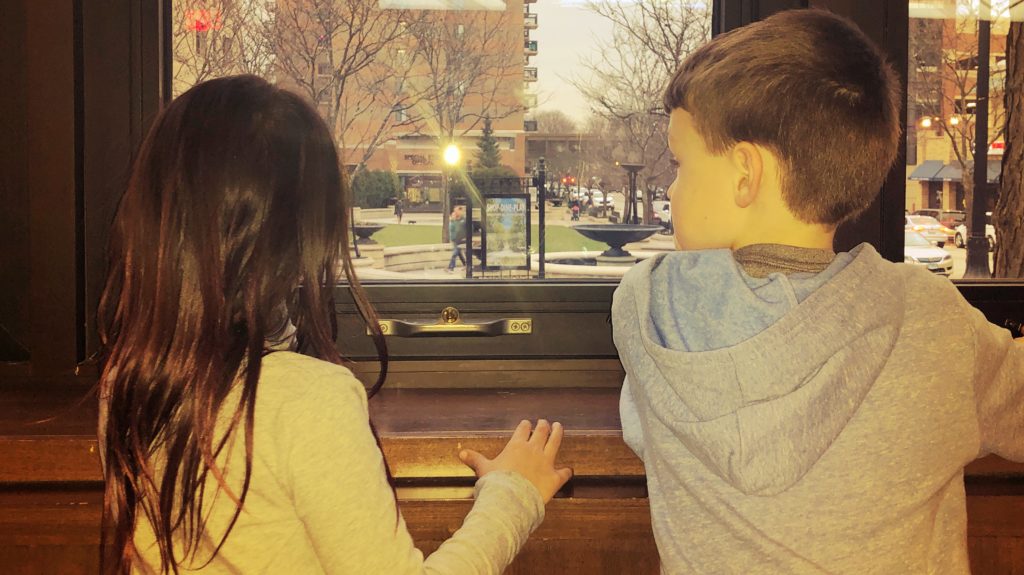By this point, you may be able to recite a litany of abuses that have come to light in the ICE concentration camps where migrants are being detained in the US. The anguish over their situation is so immediate, any person with a conscience should be losing sleep about the lack of sanitation, the overcrowding, the spread of disease, and on and on.
But most of us are asking: What can we do about it? Is there more to do than call our representatives again, begging them to visit the facilities and have them shut down? Is there more to do than just donate?
The answer is yes, there’s more to do. And it’s actually easier than you think. Essentially, ICE and DHS require a sponsor to demonstrate:
- A fixed address where they can demonstrate they have resided for a significant period of time
- Ability to provide asylum seeker with a safe, comfortable place to sleep
- Ability/financial means to provide asylum seeker with basic necessities such as food, occasional transportation, items of clothing, etc.
- Sponsors are also expected to receive mail on behalf of the asylum-seeker regarding court dates and other legal proceedings.
Sounds simple enough, right? There are plenty of “what ifs” that anyone can think of, but there is surprisingly little red tape involved, and lots of pressing moral imperatives to make a huge difference in the lives especially of children being held.
We Talked to a Woman Whose Family Decided to Sponsor Asylum-Seekers to Find Out What it’s Like
Christie is a married mom of two, living in Northern Illinois. Here are her thoughts on sponsoring a mother and daughter from El Salvador.
How did you find out about sponsorship?
My husband and I talked about how we’d like to house immigrants in need of housing so they didn’t have to be in detention. We were somewhat familiar with alternatives to detention, so we did a little more research on it. We reached out to others who were currently sponsoring as well.
What emotionally moved you to do so?
Ultimately, what it comes down to for me is the core belief that we have a responsibility to take care of each other. There is no reason I was lucky enough to be born into a safe environment while others weren’t. There but for the grace of god go we all, right? So if we’re lucky enough to have safety and more than we need, then we have an obligation to share that with others. It isn’t up to me to assess the why or how that brought them here; all that matters is that they are here and they need a place to live and be safe.
How did your family feel about this decision?
My husband and I were on the same page about it. The kids were a little confused at first, and there was a transition process involved, but overall our entire family — including extended family — have been supportive. That isn’t to say there weren’t adjustments to be made and there was a bit of a leap of faith involved since we didn’t know each other before jumping into living together, but choosing to focus on the humanity in others — including strangers — we all were comfortable with it.

How do they feel about it now?
My kids think of them as pseudo-family. There are typical spats like those between siblings or kids who share living space and spend a lot of time together, but ultimately, I think that’s a sign that they are all comfortable enough to be themselves. We’ve had lots of conversations with our sons about how things might not seem “fair” right now and how we expect more of them, but that’s because they have plenty of advantages in life and when you have those advantages, you have a greater responsibility to care for those who don’t.
What was the process like for getting approved? Was there money involved?
The approval process involved several conversations/interviews with the folks at SURJ/Asylum Sponsorship Project.
The immediate financial requirements vary depending on whether released on bond or recognizance. The upfront costs for us included paying for travel costs to get here (airline tickets or bus tickets) and there are several ongoing expenses as well since asylum seekers can’t seek a work permit for at least 150 days. Some people crowdsource to cover ongoing expenses. We also found pro bono legal help, but that’s an added expense. And most people give their “compas” (which is short for companero/companera) spending cash each week/month for personal items.
How long did it take?
We started the process in October or November 2018, and they arrived in late December of 2018. Others have the process take much longer, especially if they are currently in detention and need to go before a judge to seek release.
What is your wish for everyone to know about sponsorship?
That is a real option to really do something and have an immediate impact. You don’t need a lot of space to sponsor. We don’t live in a big house at all and I think there was even someone who had a pregnant woman living in their living room because it was the only space they had available. To see a 6-year-old girl spending an afternoon playing with other kids, doing cartwheels in the backyard, and going to school is a constant reminder that detention is absolutely no place for a child. EVER.


Pingback: Summer Vibe | Elly Lonon